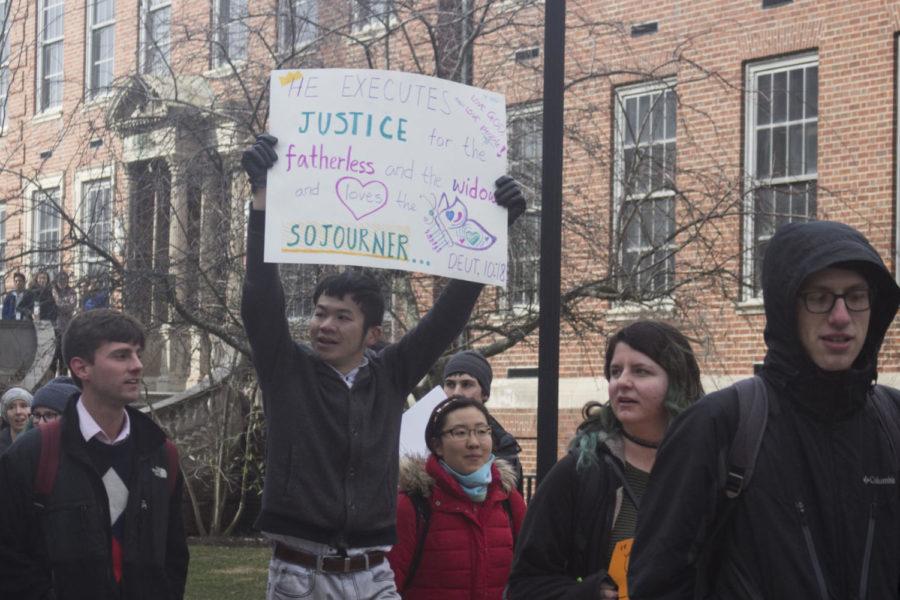Student march against travel ban
February 12, 2017
A large group of UK students participated in a student-led immigration ban march on Thursday, Feb. 9. The march protested the recent immigration ban, decried by President Trump’s executive order on Jan. 27.
The students marched in conjunction with a series of other student-led protests in universities across the nation. Students met in the Don & Cathy Jacobs Science Building and then proceeded around campus, yelling their slogan, “No ban, no wall, peace and love for all.”
“The main idea behind the march is of course to protest the executive order but to also show that we, as the UK community value the principles of inclusion and compassion. That we are all one group and one community,” said Ranym Nenneh, a junior psychology major, who is an international student from Syria and the event coordinator.
Students originating from all over the world, like Shane Peter D’Souza, an international student and junior biology major, came out to voice their feelings and opinions.
“The executive order affects people from many Muslim countries, but also many of us who were born and raised there but are not necessarily Muslim are also apprehensive about heading back home and seeing our families anymore,” said D’Souza, who was born in India and raised in Dubai.
Some students, like Cameron Tyrrell, a doctoral student focusing on gender and women’s studies, found the march to be another key protest in the movement against many of President Trump’s new policies.
“Something that people need to realize is that politics is not transactionable. Just because a democrat is not in the oval office does not mean you get to lie down and take 8 years or 4 years off. You have to be constantly showing up. Especially in a state that is as red as Kentucky,” Tyrrell said.
“Students and faculty members are really affected by this, we have 118 students from just the seven countries listed in the ban and we have 3,000 who are international students. So, I just feel like as an academic institution we have a voice and we need to use that to our advantage,” said Nenneh, on the purpose and importance of the march.























































































































































